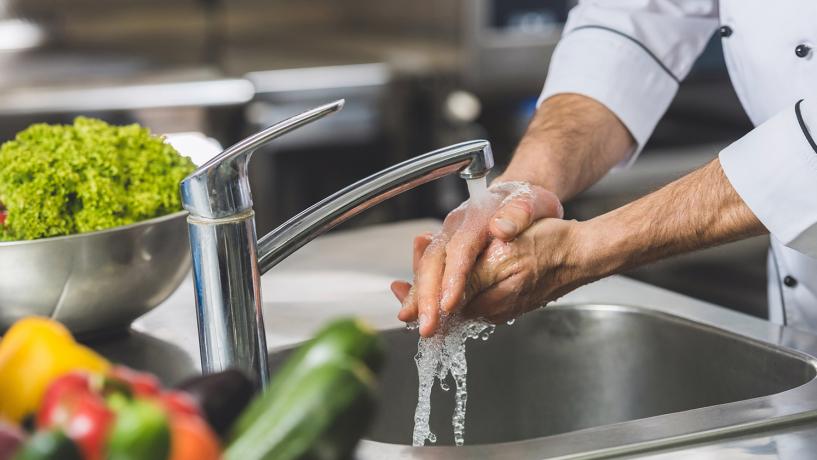
The world will celebrate Global Handwashing Day on October 15 — a day dedicated to promoting awareness and understanding of the importance of hand washing with soap. The theme for this year’s Global Handwashing Day is “Hand Hygiene for All” and focuses on a global initiative to encourage everyone to improve their hand hygiene. This year’s theme illustrates that hand washing is more important now than ever as countries around the world grapple with the COVID-19 pandemic.
Global Handwashing Day was founded by the Global Handwashing Partnership (GHP) in 2008. The main focus of the day was to spread the word about hand washing and the value of clean hands as an effective way to prevent diseases around the world. That first year saw 120 million children in more than 70 countries around the world wash their hands with soap.
Today, Global Handwashing Day continues to promote hand washing advocacy and awareness while also building sinks to provide access to hand washing facilities for all. One of the main goals of Global Handwashing Day is to create a culture of hand hygiene.
Why is hand washing important?
A survey by the Food Safety Information Council revealed that nearly 40% of respondents stated that they did not always wash their hands before handling food. Not only is this unhygienic, but it contributes to the spread of food-borne illnesses. Hand washing is essential to reducing the transmission of pathogens and diseases. As the COVID-19 pandemic continues around the world, proper hand hygiene has also become an essential tactic to stop the spread of the coronavirus.
For food businesses, hand hygiene has always been an important part of health and safety protocols. The pandemic has made it even more essential in order to keep staff and customers safe. Food businesses are encouraged to provide ongoing training on hygiene protocols and the proper hand washing technique for all staff. Training on these topics is covered in the Australian Institute of Food Safety’s Food Handler Course.
Is hand sanitiser the same as hand washing?
Recently there has been a marked increase in the use of hand sanitiser in food businesses by both customers and staff. It is important to acknowledge that hand sanitiser should only be used when proper hand washing cannot be done. Washing hands with warm water and soap is the most effective way to kill bacteria and harmful pathogens that may be on hands. Global Handwashing Day is the perfect time for food businesses to continue to advocate for proper hand washing by all Food Handlers in the food business.
How effective is hand washing?
In a fact sheet provided by the Global Handwashing Partnership, statistics on hand washing illustrate just how important hand hygiene is:
- Hand washing can reduce diarrheal diseases by 30% — 48%.
- Hand washing can reduce acute respiratory infections by 20%.
- Hand washing can reduce the transmission of pathogens such as cholera, Ebola, shigellosis, SARS and hepatitis E.
- Hand washing with soap destroys the outer membrane of the coronavirus and inactivates it.
- One study found that regular hand washing with soap can reduce the likelihood of COVID-19 infection by 36%.
Food business resources
The Australian Institute of Food Safety (AIFS) is passionate about helping to reduce food-borne illness in Australia. AIFS provides training on proper hygiene protocols and techniques, along with helpful resources for food businesses to use. Check out these helpful hygiene resources for your food business and keep hand hygiene top-of-mind:




